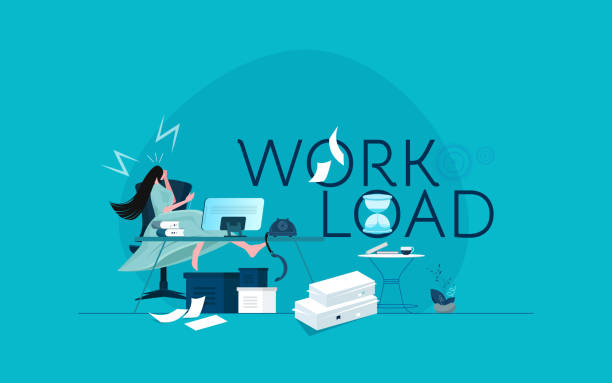In today’s fast-evolving financial landscape, accountants face Accounting Challenges that test their adaptability, technical prowess, and strategic thinking. From navigating complex regulations to embracing cutting-edge technologies, the profession demands resilience and innovation. This article dives into the most pressing hurdles accountants encounter in 2025 and offers practical solutions to tackle them head-on. For those preparing to enter this dynamic field, understanding these challenges complements the insights from Top 10 Mistakes CA Students Make accountingtoday
(and How to Avoid Them), which highlights common pitfalls for aspiring Chartered Accountants and actionable strategies to sidestep them, ensuring a smoother path to success.
Accounting Challenges in Regulatory Compliance

Navigating Ever-Changing Tax Laws
Tax regulations are a moving target, and in 2025, they’re shifting faster than ever. With initiatives like the UK’s Making Tax Digital expanding to include income tax self-assessment for businesses with turnover above £50,000, accountants must stay ahead of compliance curves. The complexity of global tax codes, coupled with frequent updates, can overwhelm even seasoned professionals.
Solution: Leverage technology to streamline compliance. Cloud-based platforms like those offered by NetSuite automate tax calculations and updates, reducing errors. Regular training through platforms like Knowsia can keep accountants sharp on new regulations. Subscribing to newsletters from authoritative sources like Accounting Today ensures timely updates, while collaboration with tax specialists can bridge knowledge gaps.
Mastering Disclosure Requirements
Financial reporting standards, such as IFRS and GAAP, demand meticulous disclosures, especially for public companies. The pressure to produce transparent, accurate reports while meeting tight deadlines is a significant Accounting Challenge. Errors here can lead to audits, fines, or reputational damage.
Solution: Invest in robust financial reporting software that integrates real-time data analytics. Tools like these catch discrepancies early. Additionally, firms can adopt standardized templates for disclosures to ensure consistency. Training staff on evolving standards through online courses, such as those potentially offered by Knowsia, builds confidence and competence in this area.
Accounting Challenges with Technology Integration

Adopting AI and Automation
Artificial intelligence and automation are reshaping accounting, but adopting these tools isn’t always smooth sailing. Many accountants struggle to integrate AI into workflows, fearing job displacement or steep learning curves. Yet, as AIA Worldwide notes, AI can enhance efficiency for small and medium-sized practices.
Solution: Start small with AI tools designed for specific tasks, like invoice processing or expense tracking. Platforms like NetSuite offer user-friendly AI features that don’t require a tech degree. Training programs, possibly through Knowsia, can demystify AI, turning it into an ally rather than a hurdle. Encourage a culture of continuous learning to ease the transition.
Ensuring Data Security
With accounting increasingly digital, data breaches are a growing Accounting Challenge. The Journal of Accountancy highlights that protecting sensitive client data is critical as cyber threats escalate in 2025. A single breach can erode trust and trigger legal consequences.
Solution: Implement multi-layered security protocols, including encryption and two-factor authentication. Regular cybersecurity audits and employee training on phishing scams can fortify defenses. Partnering with IT specialists and using secure cloud solutions, like those recommended by NetSuite, minimizes risks while ensuring compliance with data protection laws.
Managing Workload and Talent Shortages

Balancing Remote Work and Productivity
The shift to remote work, accelerated by the pandemic, remains a double-edged sword. While it offers flexibility, it complicates collaboration and oversight, leading to inefficiencies. Accountants often juggle heavy workloads, especially during tax season, which can burn them out.
Solution: Use project management tools like Asana or Trello to track tasks and deadlines remotely. Firms should foster clear communication channels via platforms like Slack. Flexible scheduling and mental health support can prevent burnout. Knowsia’s online courses might offer time management modules to help accountants stay productive in hybrid settings.
Addressing the Talent Crunch
The decline in accounting majors, as noted by Accounting Today, is creating a talent shortage. Firms struggle to find skilled professionals, putting pressure on existing staff to fill gaps.
Solution: Invest in upskilling current employees through targeted training. Platforms like Knowsia can provide accessible courses on advanced accounting topics, helping staff grow into senior roles. Partnering with universities and offering internships can attract new talent, while competitive benefits and clear career paths retain existing employees.
Enhancing Client Advisory Services

Meeting SMBs’ Strategic Needs
Small and medium-sized businesses (SMBs) increasingly rely on accountants for strategic advice beyond bookkeeping, as outlined in Accounting Today. Advising on cash flow, budgeting, and growth strategies requires accountants to step out of traditional roles, which can be daunting.
Solution: Develop advisory skills through specialized training. Knowsia’s courses, if focused on strategic advising, could equip accountants to offer insights on financial forecasting and risk management. Using data analytics tools to provide actionable insights can also strengthen client relationships, making accountants indispensable partners.
Keeping Up with Client Expectations
Clients now expect real-time insights and personalized services, driven by technology’s rapid advancements. Meeting these demands while managing core accounting tasks is a significant Accounting Challenge.
Solution: Adopt client relationship management (CRM) software to track client needs and interactions. Regular check-ins and tailored reports build trust. Leveraging AI-driven analytics, as discussed in AIA Worldwide, can deliver precise, timely insights, meeting client expectations without overwhelming staff.
Conclusion
The Accounting Challenges of 2025—ranging from regulatory complexities to technology adoption and talent shortages—demand proactive solutions. By embracing automation, prioritizing data security, and investing in continuous learning through platforms like Knowsia, accountants can turn obstacles into opportunities. These strategies not only address immediate hurdles but also position professionals to thrive in a dynamic industry, delivering value to clients and firms alike.

